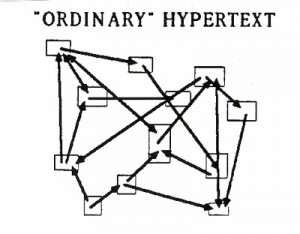Likes, comments, shares, hits, reblogs… but do these really constitute whether something is a knockout or a flop?
In a world which is turning virtual, in which order becomes disorder and power laws are becoming extinct, how do we classify how much return an idea, song, product, service or thing has on online networks? Are classic and tangible results becoming a thing of a distant past?
In my opinion, online databases which hold our personal information, thoughts, disappointments and desires via blogs, Facebook, Pintrest, and email are increasing our self-organisation. Barabasi calls these platforms, “colorful and conceptually rich arena[s] of self-organization”. However, these platforms organise the material people input in a disorderly way. I say this because they have no apparent order to the way the information is organised. In fact, it is rather collated on one or many intersecting platforms, not organised in the traditional sense. The information is not stored according to characteristics however it is still brought together – which is the direct definition of ‘to organise’.
I would argue that the identity of the word ‘order’ is changing. To order something now is to bring together the entirety of a concept, event, or product and distribute and display it to the audience in a way that is flexible and completely accessible.
The doctrines as you could put it that provides the foundations for the traditional sense of order are Power Laws. A power law in this sense I’m discussing is a relationship between two hits, in hit X is directly proportional to a fixed power of hit Y. These laws dictate and control order and move disorder to order.
Often we think that for something to exist it has to be a hit. I was sitting next to my cousin last night while she played around on her Facebook profile. She changed her profile picture, but after it only received 7 likes in an hour, deleted it. She plucked it out of existence all because it didn’t make the quota. I know this is not directly related to what I am talking about, but it helps you to conceptualise how and why we choose whether something deserves to exist or not.
Aside from this, it’s been proved that ‘misses’ (as this photo was deemed to be, the term given to this that just don’t cut it or rank in views, likes or hits) can and do make money and views. This is because misses are still connections. Take Anaconda by Nicki Minaj. The song may be becoming popular now, but initially a lot of people were shocked, disgusted or just not fans of the song and its booty-flashing YouTube music video. Vann-Adit, alongside executives at iTunes, Amazon and Netflix worked out that misses make dosh too.




